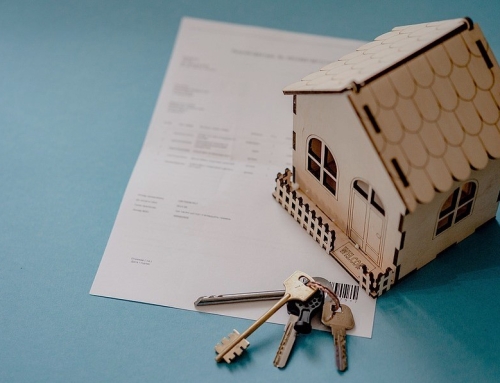5 Ways to Sell Your House in This Market
Have a house you’re trying to unload and wondering which would be the best path to do that? Well, I’ve been a housing investor most my life in journalism, and I’ve been a licensed real estate agent for nearly 20 years, and I’ve bought and sold them almost (almost) every way imaginable. Here are the ways I’ve done that:
Hire a Realtor to Do It for You
Advantages:
Most buyers and sellers use a professional real estate agents, generally Realtors, to sell the house. If you are worried about the financial and legal pitfalls of this sometimes complicated transactions (and you should be), this is the best option. A (good) Realtor will help you price the home to sell and get the greatest price, list the home on the MLS, market to buyers, negotiate with buyers or their agents, make sure all the paperwork and inspections are done right, warn you of any problems that might crop up and walk through the closing with you. It’s the safest, cleanest option – and frequently the fastest.
Disadvantages:
Commission costs will generally be 5-6% (although half of that will go to the buyer’s agent, who you would have to pay anyway).
I’ve sold several homes this way, and it delivers the best results and peace of mind in my book.
Sell Your Home yourself For Sale By Owner
Advantages:
You don’t pay the selling agent commission (although you probably will pay the buyer’s agent commission). If it’s the home where you have lived, you know it better than anyone else – and the neighborhood and nearby amenities.
Disadvantages:
You have to do all that work list above, plus market it, show it, find the other needed professionals (like title), make sure you’ve done all the required disclosures and paperwork (which are many and unfamiliar to non-agents). Then you have the legal and financial risk, which could last years, of making sure you did it all right. And unless you put it in the MLS (an expense), good luck finding buyers. If a buyer’s agent brings you someone, you’ll have to pay that agent as well.
I sold one house like this totally by luck. All I did was put a cheap Home Depot sign in the front yard, and just before I was going to give up and rent it out, someone visiting the neighborhood saw it, called me, and bought the house. Never had any luck doing it this way again.
Find your own buyer and then turn it over to a professional
This is kind of a combination of the two above. Finding the right buyer is half the hardest part, so if you live in a sought-after neighborhood, you might attempt this first with a seller’s agent waiting in the wings. You’ll still have to pay that agent a commission, but she will be doing the most important and delicate work, and you’ll still save money. (Have them help you price it in advance.)
I sold one house this way, and it was fairly easy and straight-forward. The key, though, is actually being able to find a buyer, which – as I said – is half the hardest part.
Use one of those companies promising to sell it with no hassles and for the best price
Advantages:
These guys promise to get you a deal at or better than market prices, take care of it with no hassles, let you live in it longer, handle repairs, do the showings and close on any (reasonable) date you choose. What could be easier?
Some of what they promise is true, but just some. For those who just hate the entire process and don’t want strangers tromping through the home (or want to clean it up to presentable standards), this method is truly the least hassle.
They will handle the paperwork, and you will have no showings, and it will be clean and as simple as possible.
Disadvantages
All that is for a price, though.
You will pay at least three ways: A commission to the company, a lower-than-market selling price, and the cost of repairs – often higher than you could have accomplished that yourself or managing repairs.
You will hear ads from these operations promising to get you higher than market price or some irrelevant mark like X percent above average market price.
I have insufficient words to call all that BS.
“Over average market price” means absolutely nothing to your sale; it’s likely not “average.” You’ll hear ads saying this buyer got tens of thousands over the expected sale price. So some guy who knows so little about real estate that he takes this deal is going to know how and what the market will price his house? Not likely. And again, irrelevant. Who cares what he expects? You want the best price you can get compared to what the market expects, not the least experienced seller in town.
Some also promise that they have buyers looking in your neighborhoods or that they have a website where you can see homes before they’re put on the MLS so you can see them first. That’s in the high 90s percentage BS. There is an enormously slight chance either of those will do you any good. The entire reason for the pitch is to get sellers and buyers to give them your contact information so they can pitch you their services. Nothing wrong with trying to entice customers, but the pitch is inherently dishonest. Do you want to deal with an operation with an inherently dishonest method of attracting you?
They tell you that you don’t have to worry about repairs, and that’s generally correct. What they don’t tell you is that most of the time you still will have to pay for those repairs, and they’re not exactly shopping for the best price for that.
So your net take on the sale of your house will be reduced by their commission, the reduced assumption of its value, and the higher cost of repairs.
But it is less hassle, and by a lot.
I sold one of my homes like this, but it has very narrow circumstances that make it worthwhile.
1) It was our home that we rented out when we moved to another state for professional reasons, and our window to sell it without paying capital gains tax was closing soon.
2) We cleaned and repaired the house ourselves, so our repairs bill were pretty much zero.
3) As a licensed agent, I could find what similar homes were selling for and challenge the company’s estimate, and it raised the price it would pay me because of that. (Hint: You can negotiate with these companies or walk away if they won’t. And Realtors – hoping to get the listing if that deal doesn’t work out – will help you with that.)
4) At the time, we had other high-interest-rate loans, including credit cards, that would be cleaned up when we sold the house. So we would lose huge other expenses by paying them off with the proceeds from selling this house. Without that, it still wouldn’t be worth it.
Rent Your House Out
This isn’t for everyone, and it requires a learning curve, ability to deal with hassles, and generally a good property manager. Also, you have to not need the money from the house’s equity.
But I’ve had rentals for decades, and the worst real estate decisions I’ve made generally involved selling houses I didn’t have to rather than renting them out and letting others pay the mortgage.
I still have the house I bought decades ago on the GI Bill (nothing down), when I couldn’t imagine how I was going to come up with $313 a month (at 9.5% interest). It’s now paid off, rented out, and brings in a steady income.
Rental real estate is a great way to accumulate wealth and income later in life, and if you can turn an owner-occupied property into a rental and still get your next house, brother or sister, you are on the road to financial security. If – not a small word – you have the stomach for it.
*****
The upshot of all of this is that you have many paths to selling your house, and you should consider your own circumstances, expertise, time lines, and ability to handle hassles and details before settling on one in particular. And remember, the advice you get from those who would profit from your decision is tainted.
I have written multiple “how-to” books on real estate, including buying new construction and selling by yourself, and if you want guidance, feel free to contact me. I’m not an active agent, so I won’t try to sell you my services.
The post 5 Ways to Sell Your House in This Market appeared first on Arizona Realty Network.
Related Posts

Contact Form













